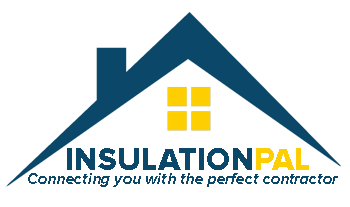Loose Fill Insulation: Definition and What it is
Insulation material installed loosely, typically blown or poured into cavities.
What is Loose Fill Insulation?
Loose-fill insulation consists of small particles of fiberglass, cellulose, or mineral wool that are blown or poured into attics, walls, and other cavities. This form provides complete coverage around obstructions and irregular spaces that batts cannot effectively insulate.
Loose-fill insulation is synonymous with blown-in insulation when pneumatically installed, but can also be poured by hand in accessible attics. The material flows around wiring, pipes, and irregular framing, eliminating gaps that reduce batt performance. Different materials offer varying performance: cellulose provides good air sealing and sound absorption, fiberglass resists moisture and settling, and mineral wool adds fire resistance. Proper installation density is critical—too loose reduces R-value, too dense wastes material and increases cost.
Loose-Fill Insulation Materials
- Cellulose: Recycled paper treated with fire retardants, R-3.6 to R-3.8 per inch, settles 10-20% over time
- Fiberglass: Spun glass fibers, R-2.2 to R-2.7 per inch, less settling than cellulose
- Mineral Wool: Rock or slag fibers, R-3.0 to R-3.3 per inch, excellent fire resistance
- Vermiculite/Perlite: Expanded minerals, rarely used today, R-2.0 to R-2.7 per inch
Loose-Fill Installation Best Practices
Achieve target R-values by installing to proper depth—use depth markers or rulers to verify. In attics, install baffles at soffits before blowing to maintain ventilation airflow. Seal air leaks before installing loose-fill as the material itself doesn't stop airflow effectively. For wall retrofits, use dense-pack technique (3-4 lbs/cu ft) to provide both insulation and air sealing. Account for settling when calculating required depth, especially with cellulose. Professional installation ensures proper coverage, density, and depth for optimal performance.
Benefits of Loose Fill Insulation
- Complete coverage eliminates gaps around obstructions
- Cost-effective for large attic areas
- Excellent for retrofit applications
- Conforms to irregular spaces perfectly
- Various materials suit different applications
- Quick professional installation
Loose Fill Insulation Cost
Loose-fill insulation offers excellent value, especially for attics and retrofit wall applications.
- Material (cellulose: $1.50-$2.50/sq ft; fiberglass: $1.75-$3.00/sq ft installed)
- Target R-value and depth
- Attic size and accessibility
- Dense-pack wall installation ($2-$4/sq ft)
- Equipment rental for small DIY projects
- Professional installation recommended for best results
How InsulationPal Can Help You
InsulationPal connects you with licensed, experienced insulation contractors. Compare multiple quotes to get the best value for your project.
Free Quotes: Get multiple competitive quotes from pre-screened contractors.
Expert Matching: We match you with pros experienced in loose fill insulation.
Quality Assurance: Licensed, insured, and verified contractors.
Related Services and Resources
Explore all services we offer
Discover the best attic insulation for hot, dry climates with spray foam, radiant barriers, and optimal R-values
Learn about moisture-resistant attic insulation options for humid climates, including spray foam and vapor barriers
Find the best attic insulation for cold, wet climates with strategies for moisture control and heat retention
Compare batt and blown-in insulation installation methods, R-values, costs, and best applications
Loose-fill insulation for attics
Expert guides and tips on insulation
